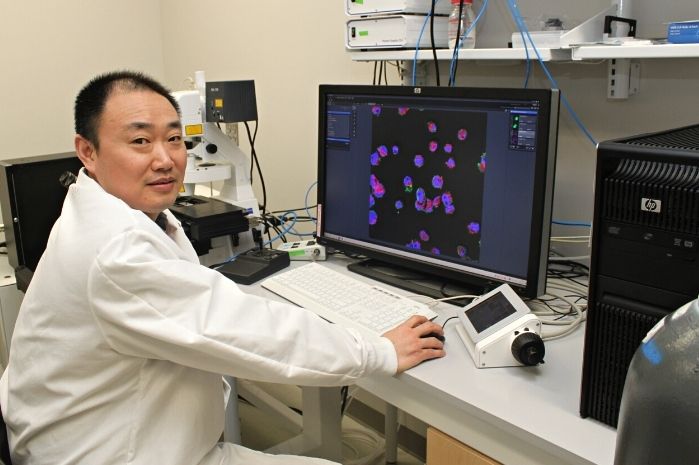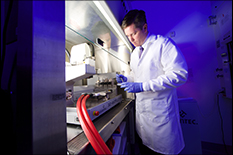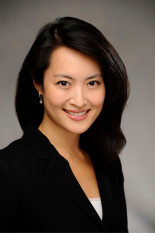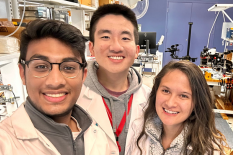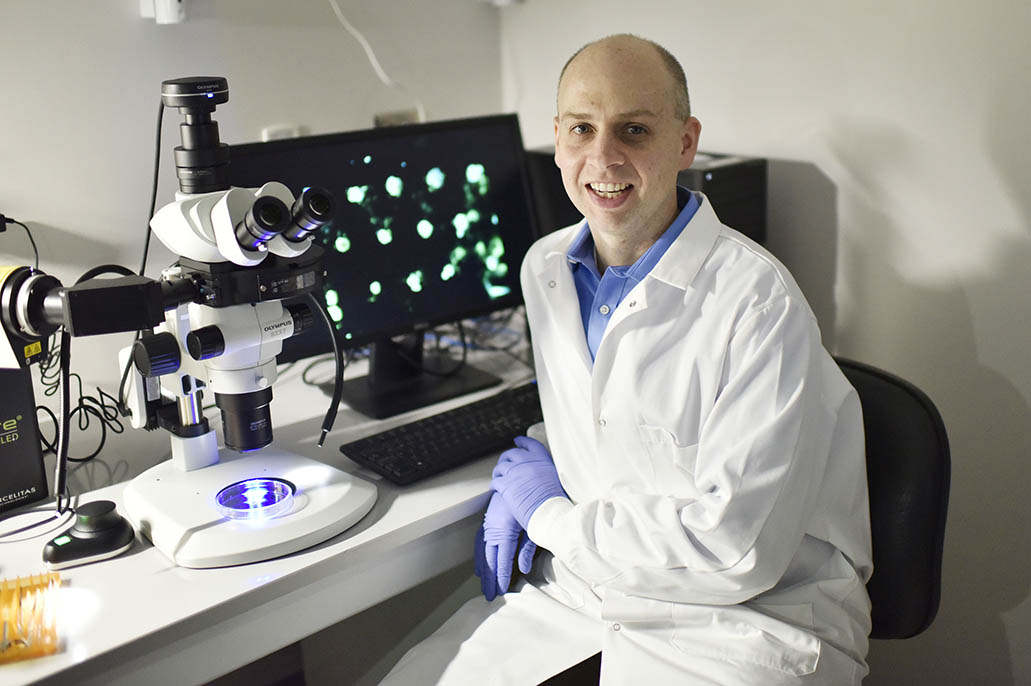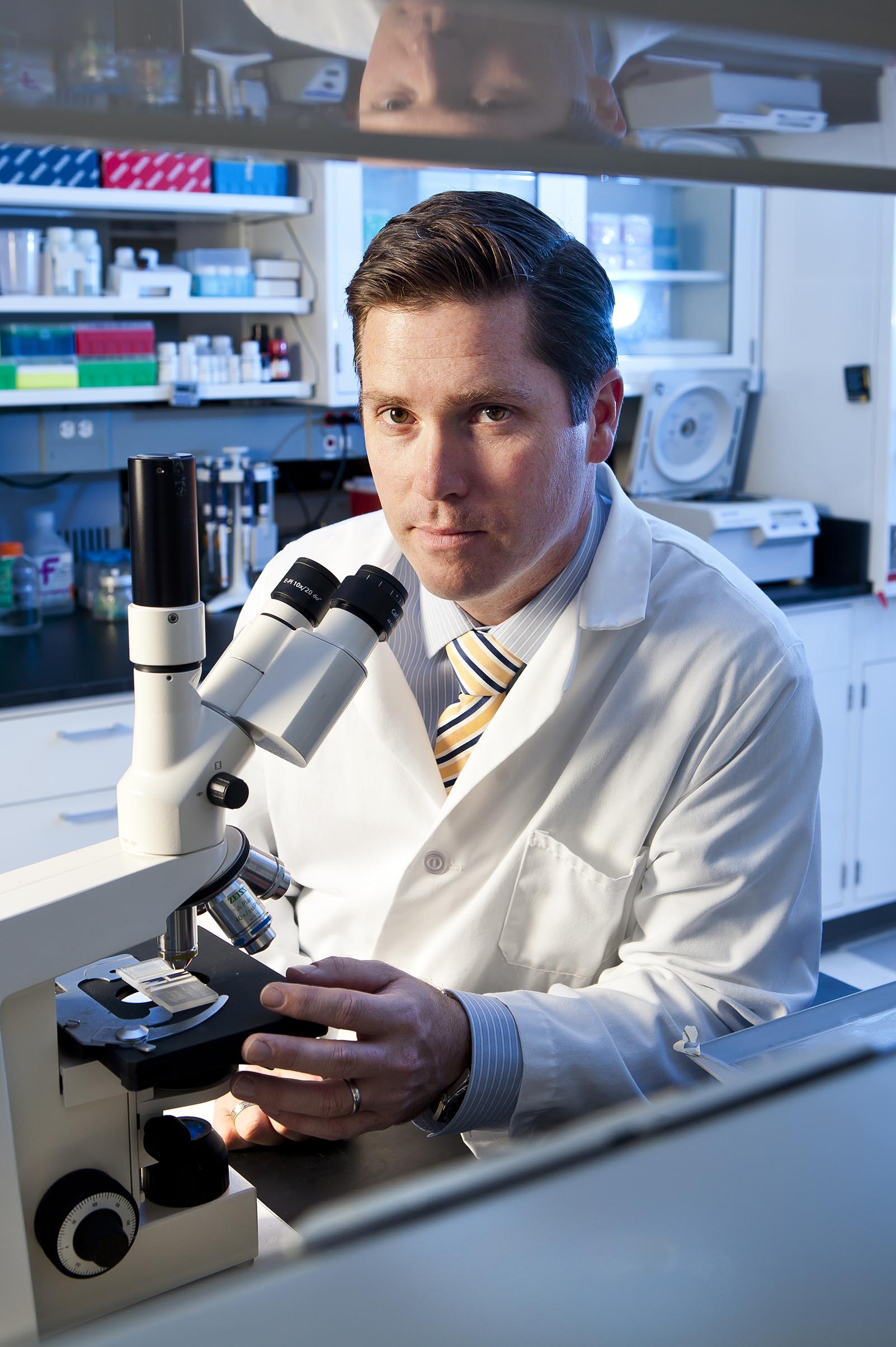News Story
Kuo and Mueller Join BIOE Faculty
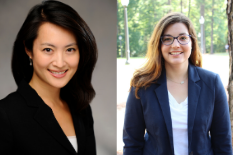
Catherine K. Kuo (left) and Jenna Mueller (right)
The Fischell Department of Bioengineering (BIOE) is excited to welcome two new faculty members – Associate Professor Catherine K. Kuo and Assistant Professor Jenna Mueller.
Catherine K. Kuo is an expert in biomaterials, mechanobiology of tendon development, stem cell-based tissue engineering, and regenerative medicine. Kuo received her Bachelor’s degree in Materials Science and Engineering and a dual Ph.D. in biomaterials and macromolecular science and engineering from the University of Michigan. She underwent postdoctoral training at the Cartilage Biology and Orthopaedics Branch of the National Institute of Arthritis and Musculoskeletal and Skin Diseases (NIAMS) of the National Institutes of Health (NIH).
Prior to joining BIOE, Kuo worked as an associate professor in the Department of Biomedical Engineering and Department of Orthopaedics at the University of Rochester. There, she also served on the Senior Executive Committee for the Center for Musculoskeletal Research.
Kuo’s research characterizes structure-property relationships of embryonic tendons during development to identify key regulators of tendon formation that may serve as therapeutic targets to enhance adult tendon regeneration.She also studies the mechanobiology of embryonic tendon development, with the goal of developing in utero interventions to prevent and treat congenital musculoskeletal birth deformities.
Kuo is a fellow of the American Institute for Medical and Biological Engineering (AIMBE) and recipient of the National Science Foundation (NSF) CAREER Award, March of Dimes Basil O’Connor Starter Scholar Research Award, GoLife Innovation in Research Award, and Emerging Investigator Award by Stem Cell Research and Therapy. She was recognized by the National Academy of Engineering as an outstanding U.S. engineer younger than age of 45 at the German-American Frontiers of Engineering Symposium in 2013. She has received research funding from the NIH, Department of Defense (DOD), NSF, March of Dimes, and industry. Kuo’s work has been published in high impact and discipline-specific journals including PNAS,
Biomaterials, Tissue Engineering, Journal of Orthopaedic Research, and Journal of Biomechanics.
“I am excited to join the Fischell Department of Bioengineering for its top tier researchers, variety of expertise, and collaborations with the world’s leading national research institutes and hospitals,” says Kuo. “In this resource-rich environment, I expect we will continue our basic science work in understanding how tissues naturally form and be able to translate our discoveries into regenerative medicine solutions for injured, diseased, and aging tissues.”
Jenna Mueller is an expert in developing biomedical devices for global health, human-centered design, optical imaging, image processing, and ablative therapies. She received her bachelor’s degree in bioengineering with a minor in global health technologies from Rice University, and received both an M.S. and Ph.D. in biomedical engineering at Duke University for her work developing optical systems and automated algorithms to improve the accuracy of cancer excision during surgery.
Prior to joining BIOE, Mueller worked as a postdoctoral associate at Duke University. There, she worked with a multidisciplinary team to develop the Pocket colposcope, a low-cost, portable device to screen women for cervical pre-cancer at the primary care setting and conducted studies to demonstrate its impact in 1,000 women in eight countries.
Mueller is interested in developing translational low-cost diagnostic and therapeutic technologies to improve the management of cervical cancer and other cancers in the United States and in low and middle-income countries (LMICs). She is also spearheading a new program to develop low-cost therapeutics for cervical pre-cancer and received a K99/R00 award from the NIH to do large animal trials before moving to patient studies.
“Many medical technologies are not available in low and middle-income countries due to the cost, infrastructure, and medical expertise required to implement and sustain them. What excites me most about the field of Bioengineering are the tremendous opportunities to increase access to health care through developing more affordable biomedical technologies,” says Mueller. “I’m particularly excited to join the Fischell Department of Bioengineering because of its emphasis on collaborative and translational research, which is supported by an immense amount of expertise and resources within the University of Maryland and the surrounding D.C. area, including the Robert E. Fischell Institute for Biomedical Devices, Center of Excellence in Regulatory Science and Innovation (M-CERSI), and proximity to national institutes and medical centers.”
Published May 26, 2020
